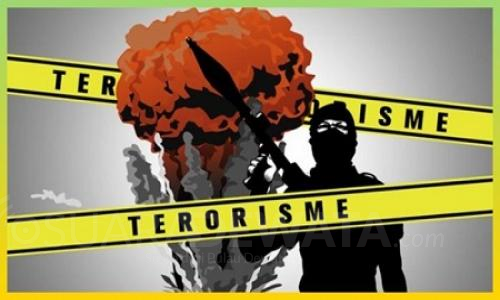Correlation of HTI with Terrorism
By: Ilham Akbar )*
The radical group Hizb ut-Tahrir and terrorism are seen as having close links. Despite claiming not to resort to violence, the ambition of the Hizb ut-Tahrir group to establish a khilafah state cannot be underestimated. These ideals also remind the public of the concept of a khilafah state initiated by ISIS groups which often spread terror.
Various media and national figures certainly agree that radicalism that grows the seeds of terrorism is our common enemy, acts of terror of places of worship are the culmination of intolerance that should not exist in the Republic of Indonesia.
In Indonesia, the term radicalism is labeled to organizations that want the establishment of an Islamic State. The organization will clearly mention the name of Hizb ut-Tahrir Indonesia, and many other mass organizations such as Jihad Islamiyah and the Indonesian Mujahidin Council (MMI).
The next question related to radical labeling with banned organizations such as HTI is why the organization gets a radical label. To answer this, let us look at the condition of independent Indonesia. Namely, when Saudi Arabia was occupied on a large scale by Wahabis, followers of Abdul Wahab. In Saudi Arabia, brutal actions such as seizing women and children, seizing property, killing, disbelieving, and other inhumane acts addressed to people who are not in their group.
The shallow thoughts and acts of violence were revealed by 3 people who returned from Hajj from Mecca. They claimed to carry out acts of purification (purification) of religion through eradication of heresy and khurafat. Because the teachings of the WaliSongo are considered deviated from the teachings of Islam. They do not appreciate the beauty and peace of Islam taught by Walisongo.
The coercion of the ideology that they heralded, resulted in the emergence of acts of violence and bloodshed among each other, namely between those who adhered to Wahhabism and those who upheld Indonesian customs and culture.
HTI became a very massive enemy of the state, in the Soekarno Era after independence in 1950, the Darul Islam organization which discouraged the Islamic State with Kartosuwiryo figures. Although this action was foiled, their ideology was infiltrated (infiltrated) by the younger generation on campuses, through the tarbiyah movement.
In the 1980s HTI actively echoed the Islamic Khilafah at the Bogor Institute of Agriculture (IPB), these organizations became increasingly prevalent in the post-Soeharto era of reform in 1998. Then they silently breeded, gave birth to and grew organizations that were the same ideology, even though they were different institutions.
Dissolution of HTI is certainly a very natural thing, because the ideology of these organizations also has similarities with terrorist organizations because they both share a radical understanding. While terrorism itself is the biological child of radical ideology.
This is usually marked by the attitude of takfiri, which likes to disbelieve others and have an extreme understanding of jihad.
Terrorism and radicalism have political aims to seize power, establish the Khilafah and enforce sharia according to their version. This is certainly not in accordance with the Pancasila Ideology which has been fought to remain an inseparable part of the Unitary Republic of Indonesia. The country of Indonesia which has the motto Unity in Diversity is not a khilafah state.
The purpose of HTI in establishing the Khilafah is none other than the seeding of the Khilafah and ending the democratic system in the world. Their goal is that the Indonesian state no longer adheres to a democratic system.
There is evidence of similarities between HTI ideology and terrorist organizations can be seen from the data of terrorists in Indonesia who have been caught and found guilty by the trial. Most of them are from HTI or at least have joined the mass organization.
In Jordan, Hizb ut-Tahrir was rejected by the Jordanian government, and was not registered as a social organization. Although the country is known as the basis of Hizb ut-Tahrir, the government did not give permission to the organization because it was considered that the ideology of the khilafah was contrary to the constitution.
In the past, before the fall of the Ottoman dynasty in Turkey in 1923, the khilafah was still a political system. But after that, the Islamic world, especially the Middle East, suffered an acute political trauma regarding the return of the Khilafah system. Besides that the argument that caused the amount of rejection was because Hizb ut-Tahrir assumed that anyone who agreed with democracy would be considered an infidel.
This certainly will strengthen our belief to immediately close the space for the growth of radical ideology before it’s too late. Although HTI mass organizations have been officially disbanded by the government, we also need to be vigilant and participate in maintaining the existence of Pancasila as the ideology of the Unitary State of the Republic of Indonesia.
)* The writer is an observer
